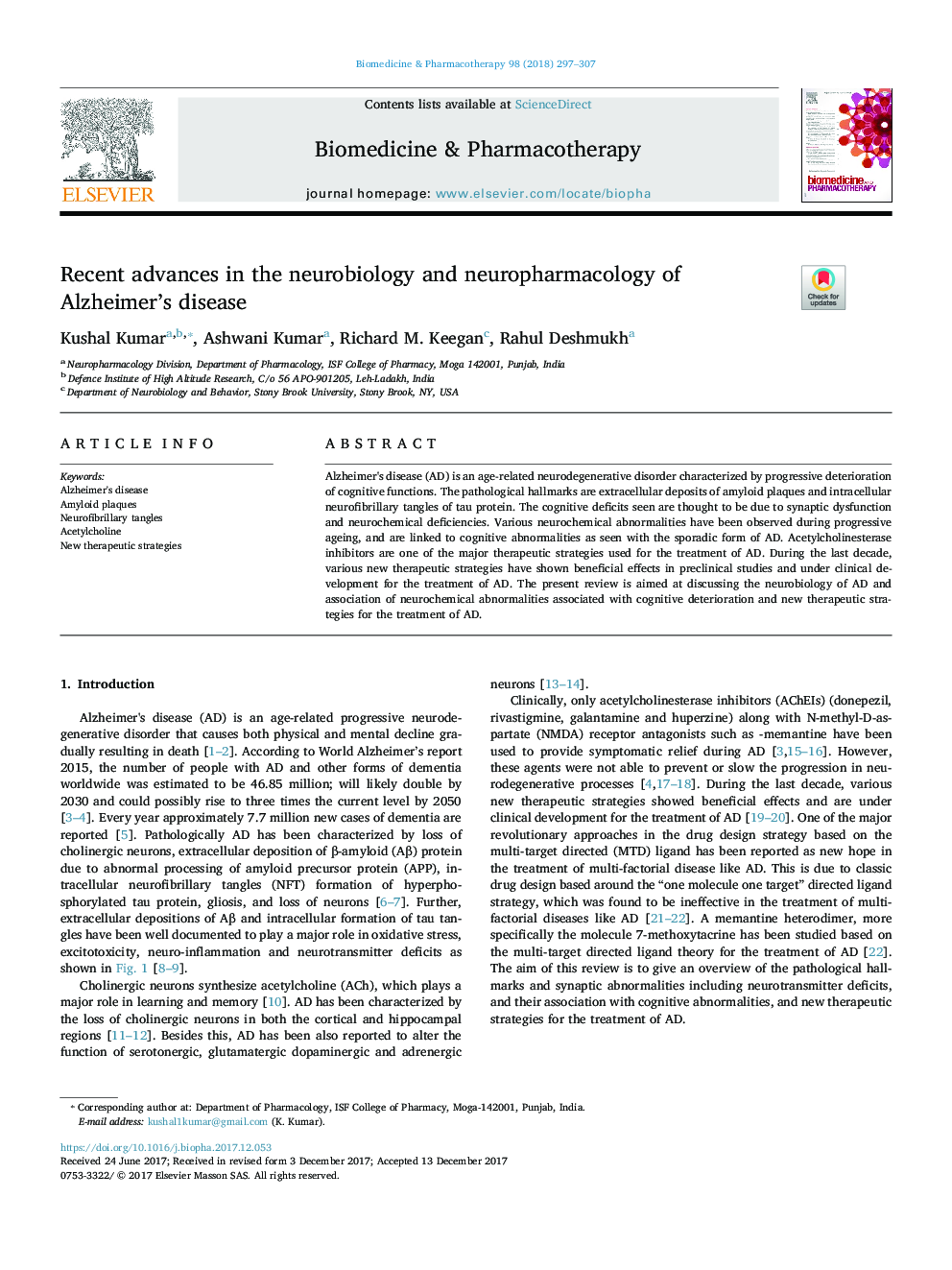| Article ID | Journal | Published Year | Pages | File Type |
|---|---|---|---|---|
| 8525633 | Biomedicine & Pharmacotherapy | 2018 | 11 Pages |
Abstract
Alzheimer's disease (AD) is an age-related neurodegenerative disorder characterized by progressive deterioration of cognitive functions. The pathological hallmarks are extracellular deposits of amyloid plaques and intracellular neurofibrillary tangles of tau protein. The cognitive deficits seen are thought to be due to synaptic dysfunction and neurochemical deficiencies. Various neurochemical abnormalities have been observed during progressive ageing, and are linked to cognitive abnormalities as seen with the sporadic form of AD. Acetylcholinesterase inhibitors are one of the major therapeutic strategies used for the treatment of AD. During the last decade, various new therapeutic strategies have shown beneficial effects in preclinical studies and under clinical development for the treatment of AD. The present review is aimed at discussing the neurobiology of AD and association of neurochemical abnormalities associated with cognitive deterioration and new therapeutic strategies for the treatment of AD.
Related Topics
Health Sciences
Medicine and Dentistry
Oncology
Authors
Kushal Kumar, Ashwani Kumar, Richard M. Keegan, Rahul Deshmukh,
